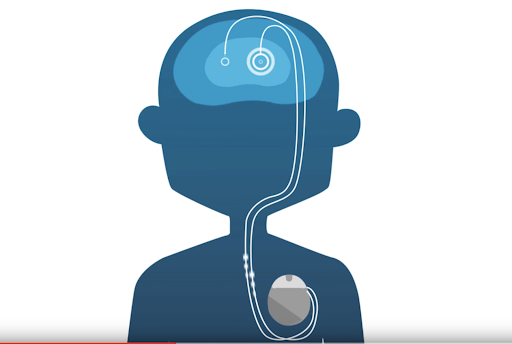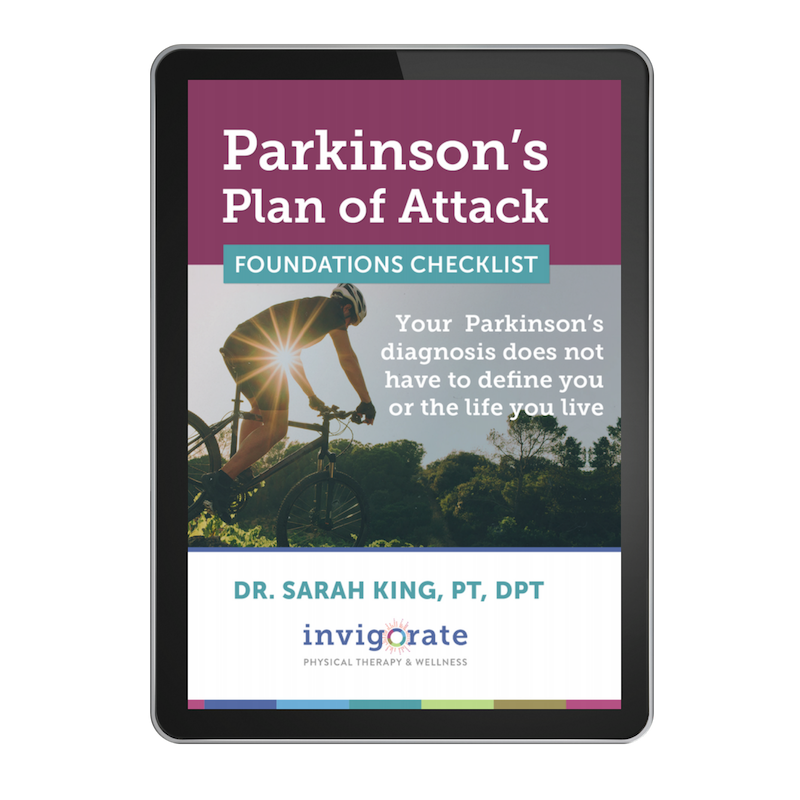At the March Capital Area Parkinson's Society meeting, I spoke alongside Dr. Britt Stone, a Movement Disorder Specialist, who shared her insights into what medications you should be avoiding if you're taking some specific Parkinson's Disease medications.
Below is a brief recap of her talk.
Please note: Because there is a lot of medical jargon here, I've made a PDF reference guide for you to print off and have with you to take to your doctor's appointments or pharmacy. You can print it out by clicking the red box below:
Left to Right: Dr. Britt Stone (Movement Disorder Specialist), Dr. Sarah King (Physical Therapist), and Elise Siprielle (Speech-Language Pathologist). Speaking at the monthly CAPS meeting about medications and PD Rehab.
Medications to Avoid (in general) if you have Parkinson’s Disease
by: Dr. Britt Stone, MD (Movement Disorder Specialist at Baylor Scott and White in Round Rock, Texas)
Because Parkinson’s disease is a condition affecting the dopamine-producing nerve cells in the brain, any medication that diminishes dopamine will worsen Parkinson’s symptoms.
The two main categories that are frequent offenders are anti-nausea medications and antipsychotics.
1. Anti-nausea medications that are notorious for making symptoms worse include Compazine (prochlorperazine) and Reglan (metoclopramide).
2. Antipsychotic medications are often used in mood disorders such as bipolar disorder or depression, so keep your eye out for some of the following: Abilify (aripiprazole), Haldol (haloperidol), and Risperdal (risperidone) to name a few.
In addition if you are on rasagiline (Azilect) or selegiline (Eldepryl), you should avoid the decongestants pseudoephedrine or phenylephrine, the cough suppressant dextromethorphan, the pain medicine Demerol, and the antibiotic ciprofloxacin. They can react with the medication to cause a condition called Serotonin Syndrome—in which you can have muscle rigidity and high fevers. This is an emergency.
Going to have surgery?
A lot of patients ask about things they should tell their physicians if they have to go for surgery. I always say that it is important to never stop Parkinson’s medications abruptly. Also, surgery is a stressor for the body, so it is common for symptoms to get worse in the recovery period, but that should improve as you heal. Some people have adverse reactions to general anesthesia (being put to sleep). This can include forgetfulness and confusion—but it will resolve.
Thanks for your insight, Dr. Stone!
For a quick reference of what medications may or may not be beneficial for you or your loved one with Parkinson's, feel free to download the free PDF by clicking here or on the red box below.







